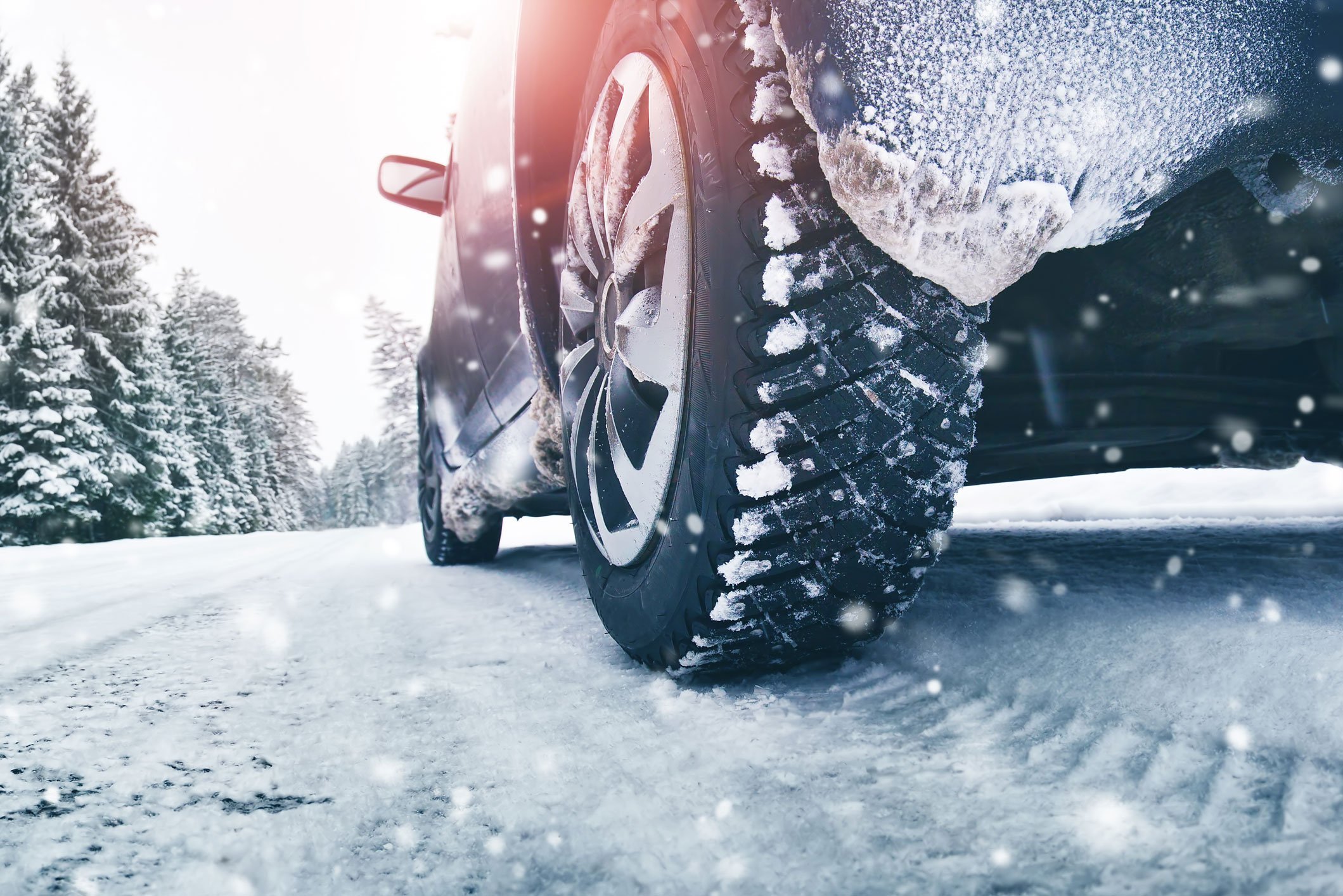How to Stay Safe During the Winter - At Home, At Work or On the Road

When we think about winter, we may picture glistening snow, skiing and the warmth of a cozy fire. While the winter season brings enjoyment, it also comes with its own set of hazards.
Here are some tips for staying safe at home, at work or on the road during these cold months.
Safeguarding Your Home
Winter safety starts at home. If you live in an area that has a lot of snow and cold temperatures, plan ahead to stay safe. Here are some of the top precautions you can take.
- Clear snow safely
- Watch and listen for snowplows, and maintain a distance of 100 feet.
- Read and follow the manufacturer's guidelines when operating a snowblower, and never perform any maintenance on it while it is running.
- Shoveling snow can be strenuous, so be sure to dress properly, stay hydrated, work at a comfortable pace and take frequent breaks.
- Reduce home maintenance hazards
- Learn to use a ladder properly with solid, level footings while maintaining three points of contact and using a spotter.
- Wear closed-toe shoes.
- Lock out electricity before commencing work.
- Minimize fall risks
The National Safety Council estimates 25,000 slips, trips and fall accidents occur daily in the U.S., yet most are 100% preventable. Here’s how you can minimize the risk.
-
- Proper footwear can reduce the risk of slips, trips and falls.
- Consider using one pair of outdoor shoes for travel to and from work and a second pair to wear while indoors.
- Keep traditional ice grippers in your car for easy access when you’re heading outdoors.
- Treat walkways and entry/exit points with salt and sodium chloride (ice melt) to melt snow and add crushed rock for greater traction.
- Ensure you have proper lighting so you can see where you’re walking at night.
- Stay warm the right way
- Install and maintain carbon monoxide detectors in your home.
- Only use Underwriters Laboratory (UL)-approved space heaters with a tip-over shut off and follow all warnings and guidelines for safe use.
- Dress for the occasion and use layers to thermoregulate the right body temperature.
- Carry spare hand warmers for unplanned cold events.
Take Precautions at Work
Winter hazards can cause serious harm. In 2014, there were 42,480 workplace injuries and illnesses in the U.S. involving ice, sleet or snow that required at least one day away from work to recuperate. It’s important to take proactive measures to keep workers safe on the job when the temperature plummets.
- Prepare for winter
- Train workers on winter safety protocols and provide supervision to ensure the best outcomes.
- Conduct on-site inspections of work being performed to ensure employees are following safety guidelines.
- Observe worker’s conditions, cold weather gear and footwear, attitude, surroundings, and job tasks to ensure a safe winter jobsite.
During winter, it’s important to conduct a job hazard analysis of your workplace both inside your business and on the perimeter.
- Top tips for inside your workplace:
- Make sure your fire extinguisher tags are current.
- Test smoke and carbon monoxide detectors.
- Inspect fire sprinklers.
- Assess and winterize HVAC systems.
- Ensure safe use of space heaters.
- Clear all exits of obstructions.
- Top tips for outside your workplace:
- Clear walkways and parking lots of ice and snow, as well as snow and icicles on roofs.
- Put carbon monoxide detectors in parking garages.
- Maintain fire lanes around buildings.
- Ensure exterior doors are clear of ice, snow and debris.
Stay Safe on the Road
When you’re traveling during the winter, it’s important to prepare for cold-weather hazards so you can reduce your risk when you’re on the move.
- Check the forecast
Check the weather along your intended travel route in advance of your travel date and watch for winter weather hazards, including blizzards, high winds and heavy rains. Keep an eye out for weather warnings or advisories, and follow the guidelines set forth by the authorities.
-
Communicate your plans
Just in case, it’s always a good idea to let a family member, friend or colleague know where you’re going, what route you’re taking and when you plan to return home. -
Prepare for the unexpected
Inclement weather can create unforeseen problems, so be prepared with necessary supplies in case you run into car trouble or another unexpected event. Emergency supplies include:
-
- A cell phone charger
- Extra warm clothing and a sleeping bag
- Water and food
- A shovel, snowbrush and chains for snowy regions
- A flashlight, jumper cables and flares
- A fire extinguisher
When you take the appropriate precautions at home, at work or on the open road, you can help ensure a safe winter experience for all.
CopperPoint Insurance Companies is a western-based super regional commercial insurance company and a leading provider of workers’ compensation and commercial insurance solutions. With an expanded line of insurance products and a growing 10 state footprint in the western United States, CopperPoint is in a strong position to meet the evolving needs of our brokers, agents and customers.
To learn more about our insurance products and find resources to better manage your risks, explore our website or contact your independent insurance agent.


